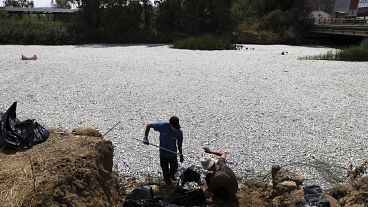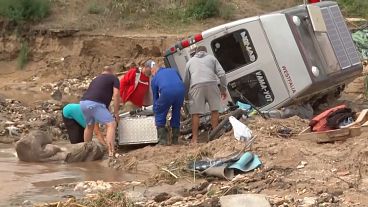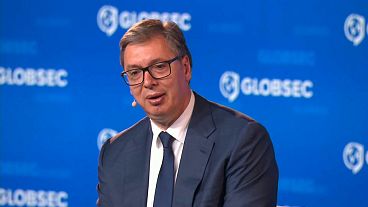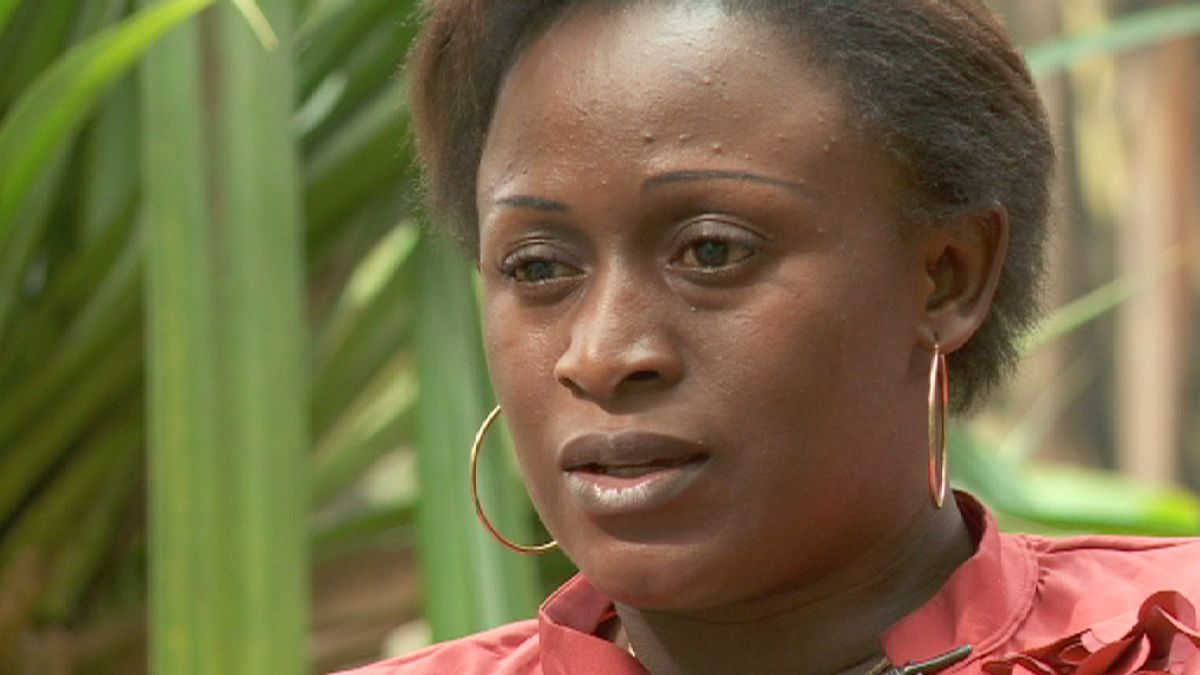Radio has often been used as a weapon of war in Africa. Caddy Adzuba is a journalist for Radio Okapi in the Democratic Republic of Congo. At all costs, she uses her voice to call for peace.
Caddy Adzuba is one the most popular voices at Radio Okapi, created two years ago by the UN and the Swiss foundation Hirondelle. Day and night, she travels round the province of South Kivu, describing the realities of a society scarred by war.
Caddy said: “For me, media is a tool. I use it as a voice. A voice for the voiceless, to speak up, to denounce abuse, and to sensitise people too.”
Her determination began when she was a teenager. In 1995, a few months after the war broke out, like thousands of others she and her family were forced to leave her home town, Bukavu.
She described her experience: “I walked through the forest. For a week, alone. I didn’t know where my parents were, if they were dead, where my brothers were, were they dead? I had no idea. But I saw people die. In all the chaos, everyone was just looking for a way out. Everyone was just looking to escape. I will never forget that. I will never forget.”
Though the war has officially ended, for Caddy it’s still on-going; as long as armed groups rampage across the eastern part of the country there can be no peace.
Caddy said: “The war is not over. Every day, there’s an attack. Every single day. Villages are ransacked, people are chased out of their homes by armed groups. And they take refuge in town, in tiny shacks containing families of 15, 18, 20 people…
Poverty enrages her. But her main concern is the trauma that so many women go through. Today she’s interviewing survivors rescued by an NGO based in Bukavu which helps women rebuild their lives and repair their minds through therapy and professional training.
As a radio journalist, and an activist with several NGOs, Caddy speaks out against the violence which continues against thousands of Congolese women, and against its causes: “Raping women was a weapon of war. These armed groups don’t rape out of sexual desire. No, if you want to destabilise a region, you go to war, you clear the population out. And then you start mining and you steal the resources. And that goes unnoticed. The Congolese people’s tragedy is their mineral resources. And you have multinational companies and powerful politicians behind all that, all over the world.”
Illegal mineral trafficking at the expense of local populations is often denounced by human rights organisations. In 2002, a UN report spelled out how the country was being pillaged by neighbouring countries, with the complicity of 85 multinational companies.
Needless to say, Caddy’s message isn’t universally popular. She has received death threats, and has been attacked at home several times. She has even had to spend time in exile, with two female colleagues. Two other journalists at the radio station were murdered. But she came back to her country to continue her work. And the threats continue.
But so does Caddy’s determination: “When you think of all of your colleagues, relatives, aunts, all your friends, who have died. You ask yourself: what have you done, to be alive today? I find my strength when I wonder how come I didn’t die back then? Why was I spared? And what can I do to help? How can I contribute, even in a very small way, a tiny way, to build peace in my country?”












